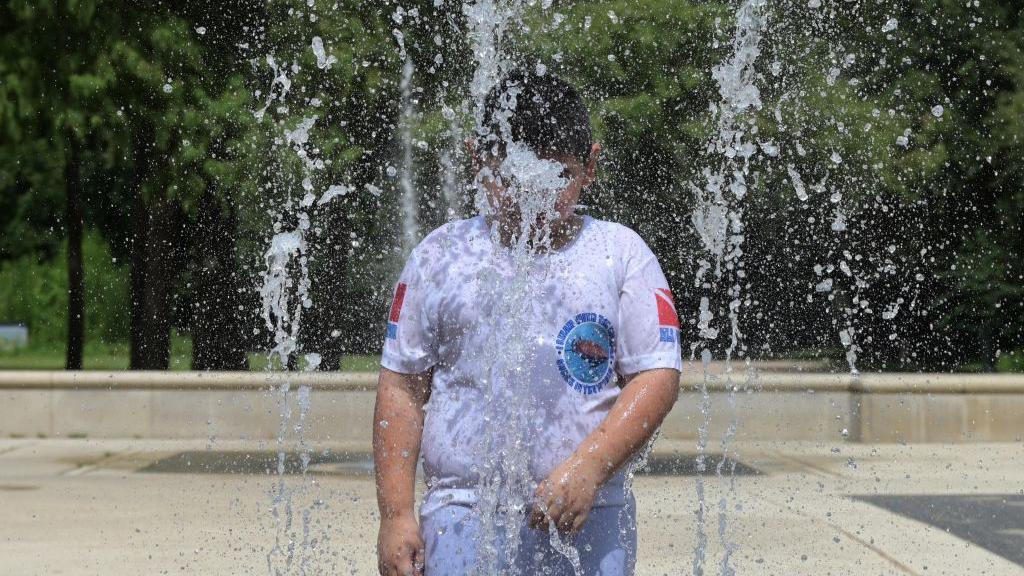Texas hospitals filling up as heat and power cuts take toll

A child cools off in a park in Houston in July
- Published
Hospitals in the Houston area are filling up after Hurricane Beryl left more than a million people in the city without electricity during a deadly heat wave.
The city's football stadium has been converted into a "transitional facility" for when hospitals reach capacity, Texas Lieutenant Governor Dan Patrick said.
"[Hospitals] can't discharge patients because patients can't go home if they don't have power," Mr Patrick said at a press conference.
Tens of millions of people were under a heat advisory on Thursday, as searing temperatures scorch the US from California to Texas.
In Texas, a heat advisory has been issued in dozens of cities.
The threat is amplified in the Houston area, where temperatures are expected to reach 105F (40C), and where residents are still recovering from the hurricane.
More than two million were without power as powerful winds uprooted trees and stripped powerlines on Monday.
Around 1.3 million people in the state still lack electricity.
More than 100 cooling centres in the Houston area have been launched to help residents.
There are also reports of long rows of cars idling in lines at filling stations waiting to refuel - becoming the last resort for those without indoor air conditioning.
On Wednesday, Mr Patrick called it "a miserable situation".
"It's pitch black at night" and "hot as Hades in the day", he said, adding that people have also lost access to food that would normally be kept cool in a fridge.
Other parts of the US are also grappling with an ongoing heat wave that is expected to last through the weekend, including in typically milder climates like Oregon.
Heat advisories have been issued for nine states, including Texas, California, Nevada, Arizona, Utah, Colorado, Wyoming, Montana, Idaho and Oregon.
In California, officials warned of "dangerously hot conditions" forecasting temperatures up to 120F (49C) in places like Palm Springs, lasting until Saturday.
A man in Sacramento died in hospital on Sunday after being brought from his non-air conditioned home, on a day when it was 106F (41C).
Further north, where temperatures are often cooler, similar triple-digit weather is expected in parts of Oregon, officials have warned.
Ten people have died in the state in connection to record-breaking heat, although further investigations are pending to determine exact causes of death.
More then 280 temperature records have been broken in the state this year, according to Oregon Public Broadcasting.
Climate scientists say that average daily temperatures globally have increased, making hotter days more likely and more intense.
The cause is often linked to human-led climate change.
Last year the planet reached its hottest recorded day four days in a row, according to data from the US National Centers for Environmental Prediction.